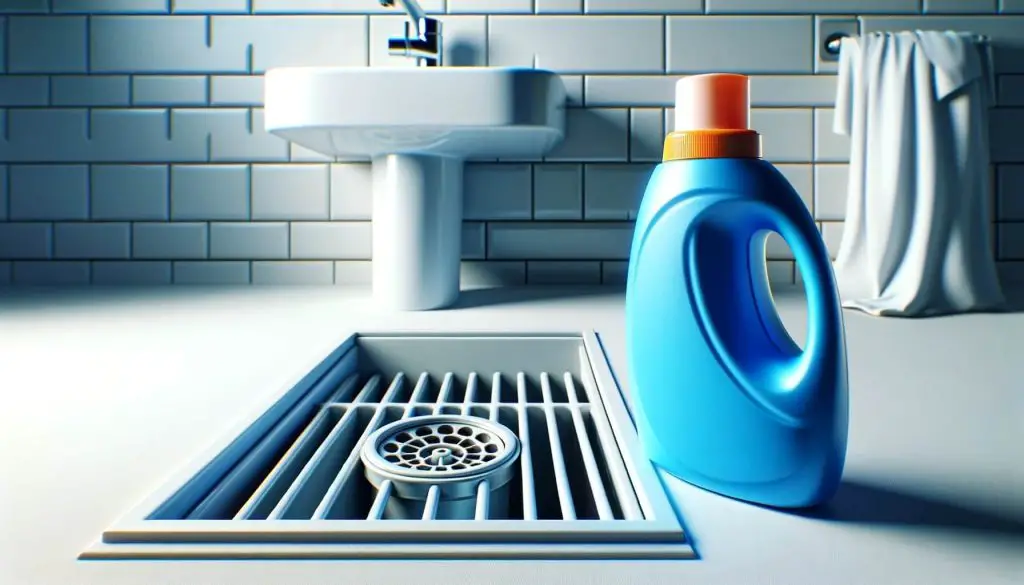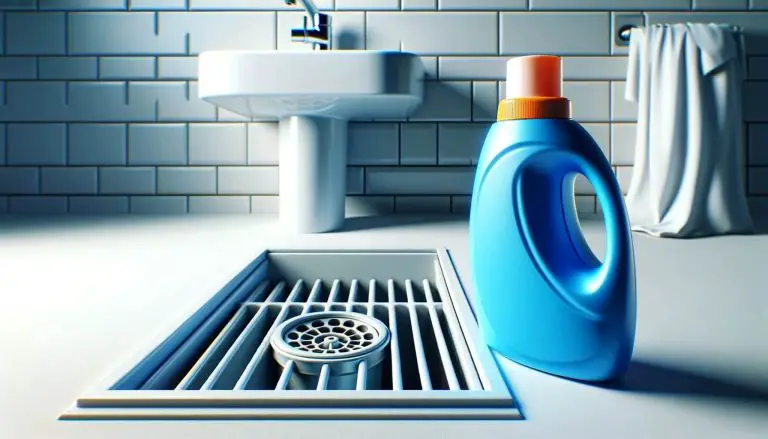Laundry detergents are specifically formulated for safe disposal down the drain, where they are treated in sewage treatment facilities or septic tank-tile field systems.
Household detergents in general are designed to be compatible with the standard methods of waste water treatment, ensuring that they do not harm these systems or the environment when disposed of in this manner.
In cases where special handling is required for disposal, manufacturers of laundry detergents and other household products provide detailed disposal procedures on the product label.
In this article, we will discuss how best you can safely dispose of your laundry detergents.
Table of Contents

How best to dispose off laundry detergent
Sometimes, we keep laundry detergents for so long that they expire.
It could also be that you bought it when it had expired and you are wondering if you can throw the expired detergent in the drain.
Here are the proper guidelines to follow to safely dispose of laundry detergent:
Using Up the Product
- The most effective way to dispose of laundry detergent is to use it entirely for its intended purpose. This minimizes waste and ensures that the product serves its full use.
- If you have excess detergent that you cannot use, consider giving it to friends, family, or neighbors. This helps in reducing waste and can be a helpful gesture to others.
Disposal Down the Drain
- When disposing of liquid laundry detergents down the drain, it is advisable to flush them with plenty of water. This helps in diluting the detergent and reducing any potential harm to plumbing systems or the environment.
- Always check the label for specific disposal instructions, as some detergents may contain ingredients that require special disposal methods.
Safe Disposal of Solid and Powder Detergents
- Solid or pod detergents should be used completely or disposed of in the trash if they cannot be used.
- Dispose of powder detergents in the trash if they cannot be used up, especially if they are not suitable for dissolving in water for drain disposal.
Can laundry detergent clog the drain?
Liquid detergents generally dissolve easily in water, reducing the risk of leaving undissolved residues in your plumbing system.
However, the misuse of powder detergents can lead to potential clogs. If a large quantity of powder detergent is poured down the drain at once, it may not fully dissolve, especially if there isn’t sufficient water flow to carry it through the plumbing.
This undissolved powder can accumulate and contribute to blockages, necessitating professional drain cleaning services.
Always ensure powdered detergents are used with adequate water to facilitate complete dissolution.
Can laundry detergent unclog drain?
Using powdered laundry detergent can be an effective method for unclogging drains, particularly for bathroom clogs.
The rationale behind this technique is that laundry detergent is formulated to break down skin oils, which often act as a binding agent for soap scum and hair, the typical components of bathroom clogs.
In contrast, kitchen clogs, which are more likely to involve food particles and grease, might benefit from powdered dish detergent.
The preference for powdered over liquid detergent in this method is due to a few key factors:
- Concentration: Powdered detergent is more concentrated and potentially harsher than its liquid counterpart. This higher concentration can be more effective in breaking up clogs.
- Limited Liquid Addition: Using powdered detergent avoids adding excess liquid to the clogged drain, which could potentially exacerbate the clog.
- Cost-Effectiveness: Powdered detergents are generally cheaper, making this a cost-effective solution.
To use this technique, the basin should ideally be empty. The drain is plugged, and the basin is filled with a few gallons of hot water, to which a full scoop or two of powdered detergent is added.
After allowing the mixture to partially dissolve, the plug is removed.
The force of the hot, soapy water can help dislodge the clog. If the clog doesn’t release immediately, additional steps such as plunging or repeating the process can be tried.
This method can also serve as preventative maintenance for drains that are beginning to slow down.
It’s important to note that harsh chemicals like Drano should be used only as a last resort.
Not only can they potentially damage pipes, but their use can also deter plumbers from providing immediate service due to safety concerns.
Conclusion
The disposal of laundry detergent in drains is generally considered safe and compliant with most regulatory guidelines, provided that the product is used as intended and disposed of responsibly.
Laundry detergents are formulated to be compatible with sewage treatment and septic systems, and their proper disposal typically involves dilution with water when poured down the drain.
References:
Related articles:

